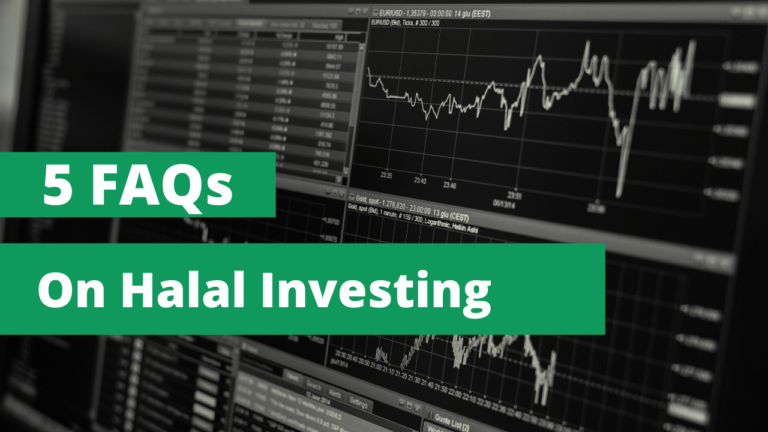
Halal investing has emerged as a significant aspect of Islamic finance in recent years, offering Muslims the opportunity to invest their money in a way that aligns with their religious beliefs and values.
This activity involves investing in businesses or ventures permissible under Islamic law and adhering to Shariah principles and guidelines. Halal investing emphasizes ethical, social, and environmental responsibility, requiring investors to avoid prohibited activities or products that go against Islamic values, such as gambling, alcohol, and tobacco.
Frequently Asked Questions on Halal Investing
1. What does Halal investing mean?
Halal investing refers to investment activities that are permissible under Islamic law. Investing in businesses or ventures that align with Islamic principles and values. Halal investment is an essential component of Islamic finance based on fairness, transparency, and ethical behavior. It must conform to the principles of Shariah (Islamic law) and must not involve any prohibited activities or products. Other than that, halal investing also allows Muslims to invest their money in a way consistent with their religious and moral beliefs.
2. Is it different from Shariah-Compliant Investments?
No, there is no difference. Shariah-compliant investments are permissible under Islamic law and must adhere to strict guidelines and principles based on the Quran and Sunnah (the teachings of the Prophet Muhammad).
3. Why is halal investing important for Muslims?
Due to religious obligations, Muslims are required to earn and invest their money in a halal manner. They are also encouraged to invest in businesses that promote ethical and moral values. Halal investments allow Muslims to invest their money in ventures that align with their values and beliefs.



4. What are the different types of halal investments?
First is equity investments. Equity investments involve buying shares in a company. Halal equity investments must be made in companies that are Shariah-compliant and do not engage in prohibited activities. Next is real estate investments. They involve buying property or land. However, real estate investments must be made in properties that are not used for prohibited activities. Thirdly is sukuk investments, which involve investing in Islamic bonds. Other than that, we have commodities investments that include investing in natural resources such as gold or oil. Last but not least, mutual fund investments involve investing in a portfolio of assets managed by a professional fund manager.
5. How can investors ensure that their investments are Halal?
Worried about your investments? Try Shariah compliance screening! Shariah compliance screening involves reviewing the investment to ensure that it complies with Shariah principles and guidelines. This screening can be done by a Shariah board or an independent auditor. Other than that, you can also try to consult with scholars. Islamic scholars can help investors ensure that their investments are halal and provide guidance on the permissibility of investments under Islamic law. In addition, regular monitoring and assessment will also be a great help in ensuring halal investments. Investors should regularly monitor their investments to ensure that they remain halal. This can involve reviewing financial statements and conducting regular assessments of the investment’s compliance with Shariah principles.
Now that you have mastered the art of Halal Investing check out our ongoing campaigns at EthisX to start your journey today!







Top Posts
Islamic P2P Crowdfunding Explained
Halal Money Matters: How Muslims Can Balance Deen and Dunya with Smart Islamic Finance
Halal Investments for Singapore Muslims? It’s time for a shake-up in the Islamic Investments scene.
Smart investment for making Halal money
3 Reasons Why Property Crowdfunding is the Smart Investment for You